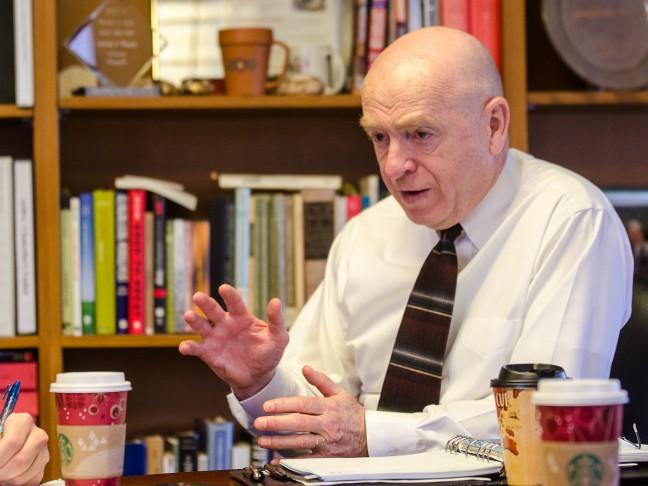The University of Wisconsin System is looking to increase its presence in the state by promoting economic growth in the state and beyond, officials said at a Board of Regents meeting Thursday.
New UW System President Ray Cross and Dennis Winters from the Department of Workforce Development addressed the board, emphasizing the need for innovation, collaboration and communication.
“I love innovation,” Cross said. “We are in an era of new tools and new models. It is difficult to be innovative and collaborative without being good at communication.”
In his two-and-a-half weeks on the job, Cross has continuously emphasized the need to listen to local campus communities and individuals to solve the challenges the system faces.
Some of the main issues he said he hopes to address are the need for greater transparency in financial reporting and the development of new forms of education to conform to emerging social and economic conditions.
“When you think about it, this is really what the Wisconsin Idea is all about: yes, providing the benefits of the university to all corners of the state is our mission, but in order to really be effective, we need to better understand the needs of the people, businesses and communities throughout the state,” Cross said.
Winters gave a presentation to the board on the economic conditions in the state, with suggestions on how the system can respond to the situation.
Despite a slow recovery from the Great Recession of 2008, Winters said the state’s economy is currently benefiting from a rebound in home equity, automobile sales, new home sales and manufacturing jobs.
“I’m as optimistic in 2014 as I have been in five years because we’re just about even and can start to look forward,” Winters said. “Manufacturing usually leads an economy during a recession, and it usually leads an economy out of a recession.”
In order to tackle the need for a more skilled workforce, Cross said he wants to “plug the holes in the educational pipeline” by reducing the need for remedial education, partner with K-12 institutions and focus on the special challenges urban areas face.
Cross also said it is important to embrace a future-oriented approach to education through project-based learning, internships, undergraduate research, blended learning and flexible options.
In addition to improving educational opportunities in the system, Cross wants to revamp the way its financial reporting works.
“You shouldn’t have to be a CPA to have a basic understanding of our universities’ finances,” Cross said.
The system has already taken steps to increase transparency including the breakdown of system funds by institutions, development of quarterly performance reports and a redesign of the annual budget-making process.
As educators, Cross said the complex issue of finances should be broken down and explained in simple and effective ways in order to relate to the public.
“Only then can we truly be engaged in finding solutions to their problems and, as our mission suggests, what I think is really an amazing mission statement, improve the human condition,” Cross said.


